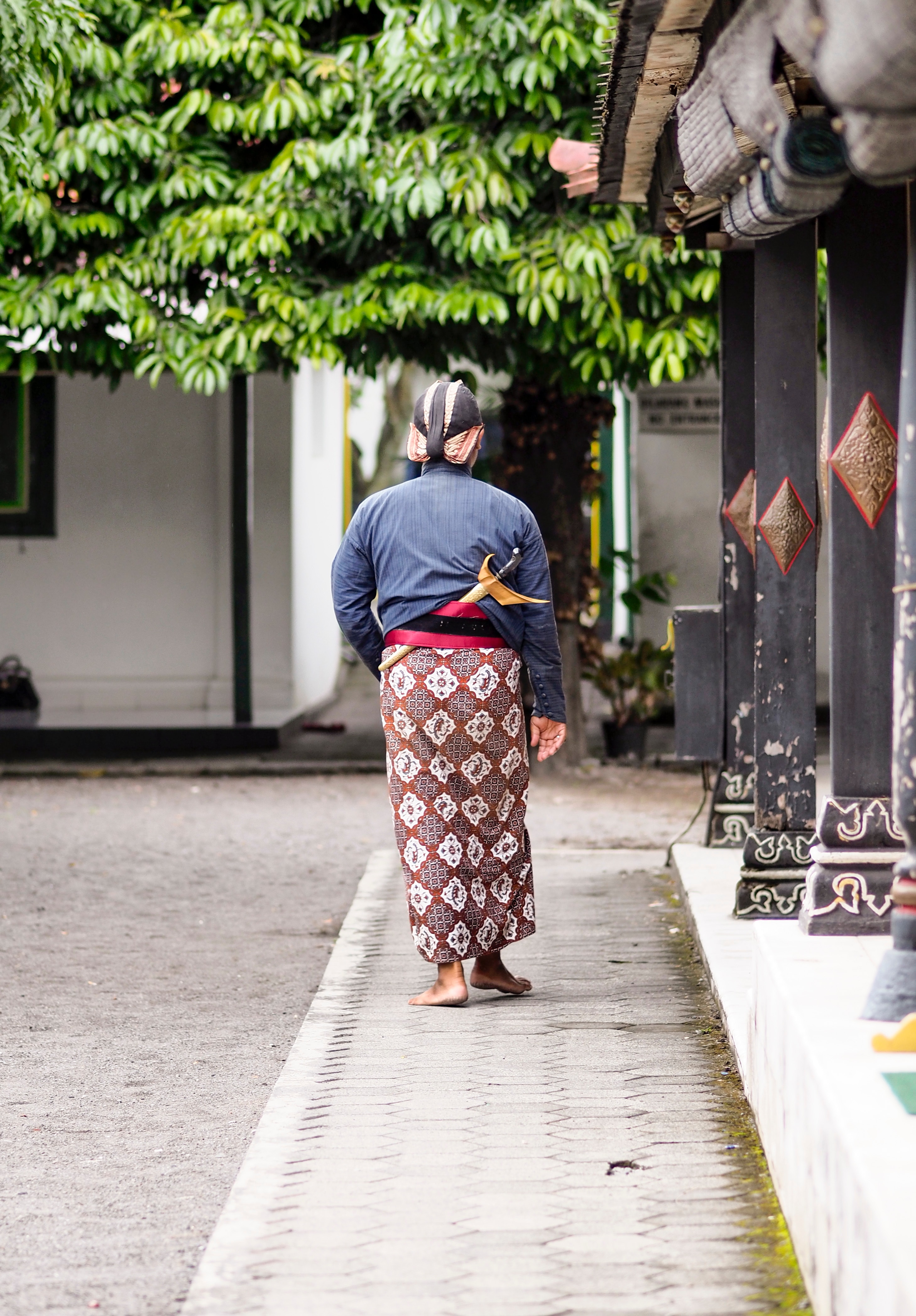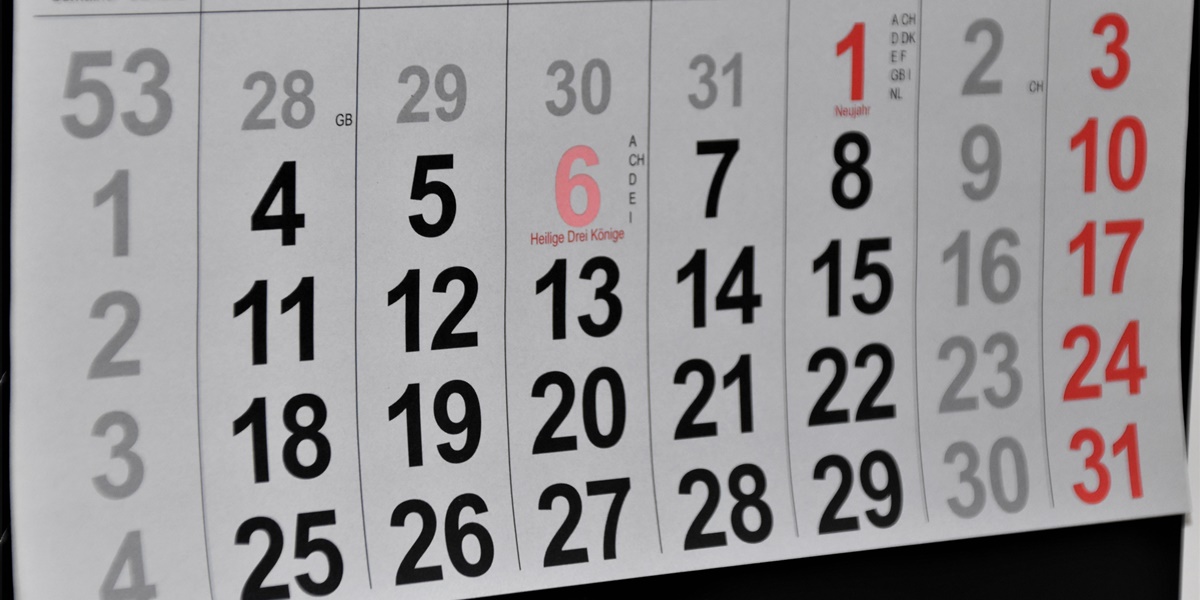Kapanlagi.com - The Javanese Primbon calendar system or "Javanese dating" has been used by the Javanese people since ancient times. Now, this traditional dating system has become part of Javanese culture and tradition. Although it sounds ancient, this Javanese Primbon calendar system is still used today.
The Javanese calendar measures time based on the position of the moon and the sun. In practice, this calendar system is used for various purposes, one of which is to mark natural cycles that are useful for agricultural systems. In addition, the Javanese Primbon calendar system is still often used for traditional purposes.
One thing that distinguishes the Javanese calendar system from other calendars is the presence of special terms such as pasaran and weton. Curious about what pasaran and weton are in Javanese dating? To find out more, just read the following review.
1. Day in the Javanese Calendar

Illustration of the 2025 calendar
As mentioned earlier, the Javanese Primbon calendar system is different from the Gregorian calendar system. However, there are still some fundamental similarities between the traditional Javanese calendar and the Gregorian calendar. One of them is the use of 7 days in a week.
In the Javanese calendar, the counting of 7 days in a week is used, namely Sunday or Ahad, Monday, Tuesday, Wednesday, Thursday, Friday, and Saturday. However, in the Javanese community that is deeply rooted in tradition, the seven days of the week are not merely interpreted as markers of time. Each day is believed to have its own philosophy.
Here is an explanation of the philosophy behind the 7 days of the week.
Philosophy of the 7 days of the week according to the Javanese Primbon:
- Radite - Ngahad - Sunday: symbolizes stillness.
- Soma - Senen - Monday: symbolizes progress.
- Hanggara - Selasa - Tuesday: symbolizes retreat.
- Buda - Rebo - Wednesday: symbolizes movement to the left.
- Respati - Kemis - Thursday: symbolizes movement to the right.
- Sukra - Jemuwah - Friday: symbolizes upward movement.
- Tumpak - Setu - Saturday: symbolizes downward movement.
2.
In addition to the 7 days in a week, the Javanese calendar system also includes the concept of Pasaran. The Javanese Pasaran consists of five types, namely Legi, Pahing, Pon, Wage, and Kliwon. These five Javanese Pasarans rotate according to their cycles. Similar to days, Javanese Pasarans also have their own meanings and significance in Javanese society.
Here is an explanation of the philosophical meanings of each Javanese Pasaran:
- Pasaran Legi means "Sweet" or can also be interpreted as moving backward or in reverse direction.
- Pasaran Pahing means "Bitter" or can also mean facing or looking.
- Pasaran Pon means "Square" or can also mean sleeping or resting.
- Pasaran Wage means "Bright" or can also mean pausing or sitting.
- Pasaran Kliwon means "Love" or can also mean standing or upright.
3. Understanding Weton

Illustration of the concept of Weton (credit: unsplash)
It has been mentioned before that in the Javanese Primbon calendar system, there is a term called weton. Until now, weton has been considered as part of Javanese culture. Even the Great Indonesian Dictionary (KBBI) provides a definition of weton based on its understanding in the context of Javanese culture.
In KBBI, weton is defined as a person's birth day that is related to one of the five Javanese pasaran, namely Legi, Pahing, Wage, Pon, and Kliwon.
For example, Andi was born on May 25, 1998, which at that time indicated Monday with the Javanese pasaran Kliwon, so Andi's weton is Monday Kliwon.
In the Javanese calendar rotation (Weton), this repeats every 35 days. This means that the same day and pasaran will only meet again after 35 days (one birth day will repeat every five weeks).
Furthermore, in Javanese culture, weton has a much more important meaning than just marking a person's birth day. According to Primbon, weton can be used as a guide to understand a person's character, predict financial luck, evaluate the potential of a life partner, determine auspicious days, and many more uses.
4. Neptu Concept
Based on Javanese Primbon, Weton can be used to predict various things. However, in order to do that, it is necessary to first know the neptu number of the Weton that wants to be predicted.
Yes, in the Javanese Primbon calendar system, there is also the concept of neptu obtained by adding up the values of the birth day with the Javanese market. The magnitude of the value of the neptu number is then believed to be able to influence the character and destiny of a person throughout their life.
To better understand the concept of neptu and how to calculate it, let's just take a look at the list of birth day values and Javanese markets, as well as the following example of neptu calculation.
Value of birth day according to Javanese Primbon:
- Sunday: 5
- Monday: 4
- Tuesday: 3
- Wednesday: 7
- Thursday: 8
- Friday: 6
- Saturday: 9
Value of Javanese Market according to Javanese Primbon:
- Legi: 5
- Pahing: 9
- Pon: 7
- Wage: 4
- Kliwon: 8
As an example:
Andi was born on May 25, 1998, which at that time indicated Monday as the birth day and Kliwon as the Javanese market day. So, the result for the neptu of the Weton is as follows:
4 + 8 = 12
5. Javanese Months in the Javanese Calendar

Illustration of Javanese Month
The Javanese Primbon calendar system also uses a 12-month system in one year. Interestingly, the naming system of Javanese months adopts many names from the Islamic or Hijri calendar. Each month in the Javanese calendar has a variable number of days, between 29 and 30 days. Therefore, there are 354/355 days in one year.
Here are the names of the Javanese months in order, along with their number of days.
1. Bulan Suro consists of 30 days
2. Bulan Sapar consists of 29 days
3. Bulan Mulud consists of 30 days
4. Bulan Bakdo Mulud consists of 29 days
5. Bulan Jumadil Awal consists of 30 days
6. Bulan Jumadil Akhir consists of 29 days
7. Bulan Rejeb consists of 30 days
8. Bulan Ruwah consists of 29 days
9. Bulan Poso consists of 30 days
10. Bulan Sawal consists of 29 days
11. Bulan Dzulqoidah consists of 30 days
12. Bulan Besar consists of 29/30 days
Total 354/355 days in one year/
6. Javanese Calendar System
The Javanese Primbon calendar system has a very long history. However, just like the calendar system in the Gregorian calendar, the Javanese year count also starts at the beginning of the new year, which is in the month of Suro. As additional information, currently in 2023, the Javanese calendar system is recorded to be in the year 1956.
Those are some of the reviews about the Javanese Primbon calendar system. Hopefully, it is useful and can increase knowledge.
(kpl/psp)
Disclaimer: This translation from Bahasa Indonesia to English has been generated by Artificial Intelligence.















